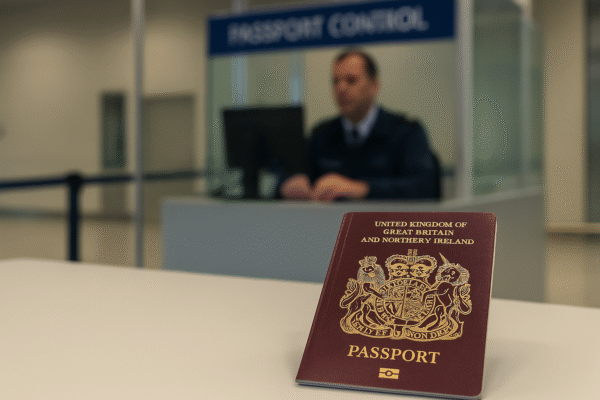New UK Passport Rules Could Disrupt Travel to EU Countries Like Greece, Portugal, and Sweden
UK travelers planning European holidays or business trips are being urged to double-check their passports following recent updates to Schengen Area entry regulations. From sun-drenched Greek islands to the historic streets of Lisbon or Stockholm, the new rules could impact your ability to enter 29 European countries—even if you hold a valid British passport.
What’s Changing for UK Passports?
The latest guidance from the UK Foreign, Commonwealth & Development Office (FCDO) highlights stricter passport validity requirements for entering the Schengen Zone. This follows the UK’s exit from the European Union, meaning British citizens are now classified as third-country nationals for the purpose of EU border control.
To enter the Schengen Area, your UK passport must:
- Be issued within the last 10 years on the date of entry
- Be valid for at least 3 months beyond your intended departure date from the EU
Failure to meet either requirement could result in being denied boarding by airlines or turned away at the border—potentially ruining your holiday or business plans.
What Is the Schengen Area?
The Schengen Area represents a landmark agreement enabling passport-free movement across 29 European countries. Originally signed in 1985 by five EU nations, the zone has expanded over the years to include 25 EU countries and 4 non-EU nations (Norway, Switzerland, Iceland, and Liechtenstein). This allows UK travelers to explore countries like Greece, Spain, France, Germany, Italy, Portugal, and Sweden without multiple visa applications, provided the entry conditions are met.
The list of Schengen countries includes:
Austria, Belgium, Bulgaria, Croatia, Czech Republic, Denmark, Estonia, Finland, France, Germany, Greece, Hungary, Italy, Latvia, Lithuania, Luxembourg, Malta, Netherlands, Poland, Portugal, Romania, Slovakia, Slovenia, Spain, Sweden, Iceland, Liechtenstein, Norway, and Switzerland.
Who Should Pay Special Attention?
All non-EU travelers, including UK nationals, must comply with the Schengen Borders Code. This means even if your passport appears valid, it might not satisfy the new 10-year issuance and 3-month validity rules.
Also, family members of EU citizens, even those holding a residence card, must verify the specific travel regulations that apply to their status. Travelers visiting Cyprus and Ireland—which are not part of Schengen—should consult those countries’ consulates for bespoke entry requirements. Notably, a Cypriot visa or residence permit cannot be used to enter Schengen countries.
Short-Stay Schengen Rules: What You Need to Know
Under the Schengen short-stay rules, non-EU nationals can stay in the zone for up to 90 days in any 180-day period. This limit applies across all 29 countries collectively, meaning time spent in one Schengen state counts toward the total.
To enter the Schengen Area, you’ll typically need:
- A valid passport or travel document
- A visa, unless you’re visa-exempt or hold a long-term residence permit
- Proof of purpose (hotel bookings, travel itinerary, or business invitation)
- Sufficient financial means to cover your stay
- Proof of return or onward travel
Even if you’re exempt from needing a visa, border agents may ask to see these documents. According to the European Commission’s Your Europe portal, failure to provide sufficient proof or meet passport criteria may result in refusal of entry.
What Happens If You’re Denied Entry?
If your travel documents don’t comply with Schengen rules, border authorities have the right to deny entry. In some cases, you can appeal the decision, but the safest option is to prepare in advance and ensure all documents are up to date.
The UK government recommends travelers:
- Check their passport issue date using official services
- Renew passports well in advance of travel dates
- Verify each destination’s specific requirements, particularly if transiting through different EU countries
Future Changes: ETIAS and EES
In addition to current passport rules, UK travelers should prepare for the upcoming European Travel Information and Authorization System (ETIAS), set to launch in mid-2025. This electronic travel authorization, similar to the U.S. ESTA system, will become mandatory for visa-free entry into the Schengen Zone.
Also expected is the Entry/Exit System (EES)—a biometric registration database that will replace passport stamping and track non-EU nationals’ stays within Schengen borders.
Both systems aim to streamline border security while providing better data on traveler movements across Europe.
Final Travel Tips for UK Citizens Visiting Europe
To ensure a smooth journey across Europe’s top destinations like Greece’s Santorini, Portugal’s Algarve coast, or Sweden’s Lapland:
- Renew your passport if it’s near the 10-year issue limit
- Check each country’s embassy website for specific entry guidelines
- Keep printed documentation of your travel plans, insurance, and proof of funds
- Stay updated with FCDO travel alerts and the “Your Europe” site
By taking proactive steps, UK travelers can continue to enjoy Europe’s diverse cultures, landscapes, and cuisines without last-minute complications at the border.
For more travel news like this, keep reading Global Travel Wire



















